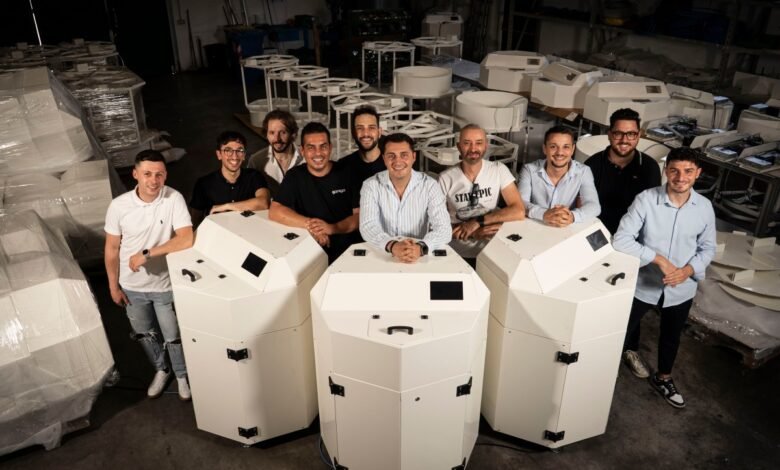Ganiga Debuts Waste-Sorting Robots at TechCrunch Disrupt

▼ Summary
– Less than 10% of the world’s plastic is recycled, and Ganiga Innovation aims to increase this using AI-enabled robotic waste bins.
– Ganiga developed three products: Hoooly robotic bins with AI sorting, smart lids for existing bins, and waste-tracking software for companies.
– The company will showcase its technology at TechCrunch Disrupt 2025 in San Francisco from October 27-30.
– Ganiga has sold over 120 bins to clients like Google and airports, generating $750,000 in revenue in the first nine months of 2025.
– Founded in 2021, Ganiga has raised $1.5 million in pre-seed funding and plans to expand into the U.S. market in 2026.
The global recycling crisis remains a pressing issue, with current estimates suggesting that a mere 10% of the world’s plastic is successfully recycled. Ganiga Innovation, an Italian startup, is tackling this challenge head-on by introducing a suite of AI-powered robotic waste management solutions designed to dramatically improve sorting accuracy and efficiency. The company is set to showcase its technology at the upcoming TechCrunch Disrupt 2025 event in San Francisco.
Ganiga has developed three core products to revolutionize how waste is handled. The flagship offering is a fleet of robotic bins named Hoooly, which utilize generative AI to visually identify and separate trash from recyclable materials automatically. For a more flexible solution, the company also produces a smart lid that can be retrofitted onto standard waste bins, providing the same intelligent sorting capabilities. Complementing the hardware is a sophisticated software platform that enables businesses to monitor their waste output in detail. This system analyzes the collected data to provide actionable recommendations for reducing overall waste generation.
The company’s participation in the Startup Battlefield at TechCrunch Disrupt marks a significant milestone. Founder and CEO Nicolas Zeoli was driven to address waste management after observing the tangible problems in his home country of Italy. He was struck by the staggering statistics, noting that over 100 million tons of plastic are produced annually worldwide, with a recycling rate languishing at just 9%. “We all need to reclaim this problem,” Zeoli stated, emphasizing the urgent need for innovative solutions.
Zeoli launched Ganiga in 2021, with the first prototype completed the following year. The decision to focus on a physical bin was strategic; it provides a tangible point for proper waste disposal while simultaneously generating valuable data. This data is crucial for the company’s long-term strategy. Beyond environmental benefits, Ganiga addresses a significant financial pain point for corporations. With many European companies facing stringent ESG (Environmental, Social, and Governance) mandates, the Hoooly system offers a way to track waste production meticulously, which can lead to substantial cost reductions.
The commercial response has been promising. Since beginning sales in 2024, Ganiga has deployed over 120 of its robotic units to high-profile clients, including Google and several major international airports in cities like Bologna, Venice, and Madrid. This commercial traction is reflected in the company’s financials, with revenues reaching $500,000 in 2024 and growing to $750,000 in just the first three quarters of 2025.
To fuel its expansion, Ganiga has secured $1.5 million in pre-seed funding from investors such as clean tech venture firm NextSTEP and Next Energy Capital. The startup is now preparing for a $3 million seed funding round. Product development continues at a rapid pace, with the launch of Hooolyfood scheduled for November. This new software product uses camera imagery to precisely quantify food waste, representing a deeper dive into data analytics. Zeoli confirmed that future development will heavily focus on software products built upon the data collected by their existing hardware.
While Ganiga’s primary market has been Europe, Zeoli has ambitious plans for a U.S. expansion, potentially relocating the company’s headquarters stateside in 2026. He proudly highlights that Ganiga is the first startup globally to fully equip an airport with smart bins, a testament to its transition from a conceptual prototype to a market-ready product.
(Source: TechCrunch)





